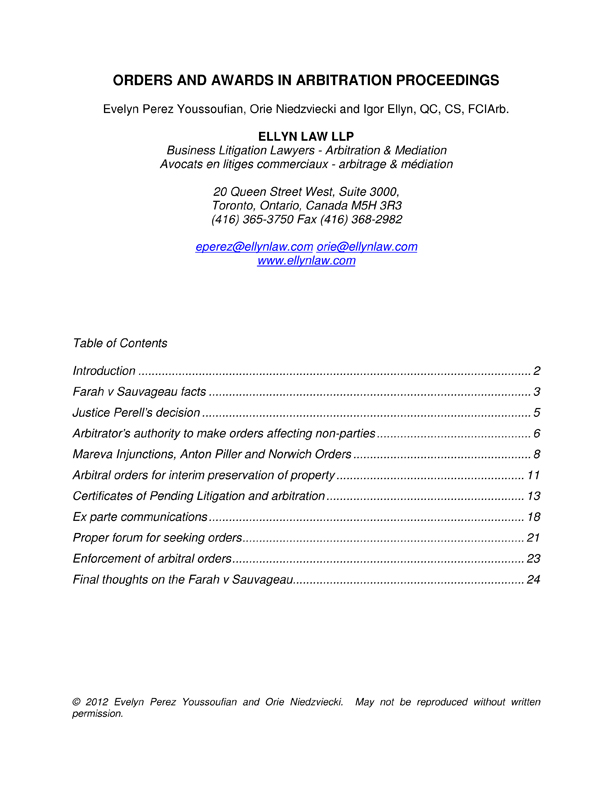In this paper, Toronto lawyers Evelyn Perez Youssoufian and Orie Niedzviecki discuss the impact of an important case in the commercial arbitration and the supervision of arbitration by the Superior Court of Justice of Ontario.
The Ontario Superior Court decision of Farah v Sauvageau Holdings Inc., 2011 ONSC 1819, resolves many issues regarding orders and awards in arbitration proceedings. The application was brought because there were novel issues raised in its underlying arbitration. In his decision, Justice Paul Perell addresses several important issues, some brought up at the Superior Court for the first time, which should be taken into account by both arbitrators and arbitral counsel when conducting an arbitration.
This paper discusses the issues of orders and awards in an arbitration as raised by Farah v Sauvageau; including an arbitrator’s jurisdiction to make orders affecting non-parties, Mareva injunctions, Anton Piller orders, Norwich orders, orders for interim preservation of property or orders for Certificate of Pending Litigation. It also discusses whether it is or when it may be appropriate for arbitral counsel to have ex parte communications with the arbitrator.
The also paper discusses whether an arbitral award can become an order of the court without resorting to the procedure in s. 50 of the Ontario Arbitration Act, 1991, in any circumstance (even an ex parte award).
The authors are members of ELLYN LAW LLP Business Litigation & Arbitration Lawyers, a Toronto law firm, specializing in dispute resolution for small and medium businesses and their shareholders. The firm is a member of the International Network of Boutique Law Firms (www.inblf.com), a prestige network of specialized law firms who have demonstrated pre-eminence their practice fields. Ellyn Law LLP is INBLF’s designated Toronto firm for shareholder disputes and arbitration. The authors were counsel on Farah v Sauvageau, and have been counsel on various international arbitrations.
This paper is for information only. It is not legal advice. It was presented at a legal seminar presented in Toronto on October 26, 2012.
